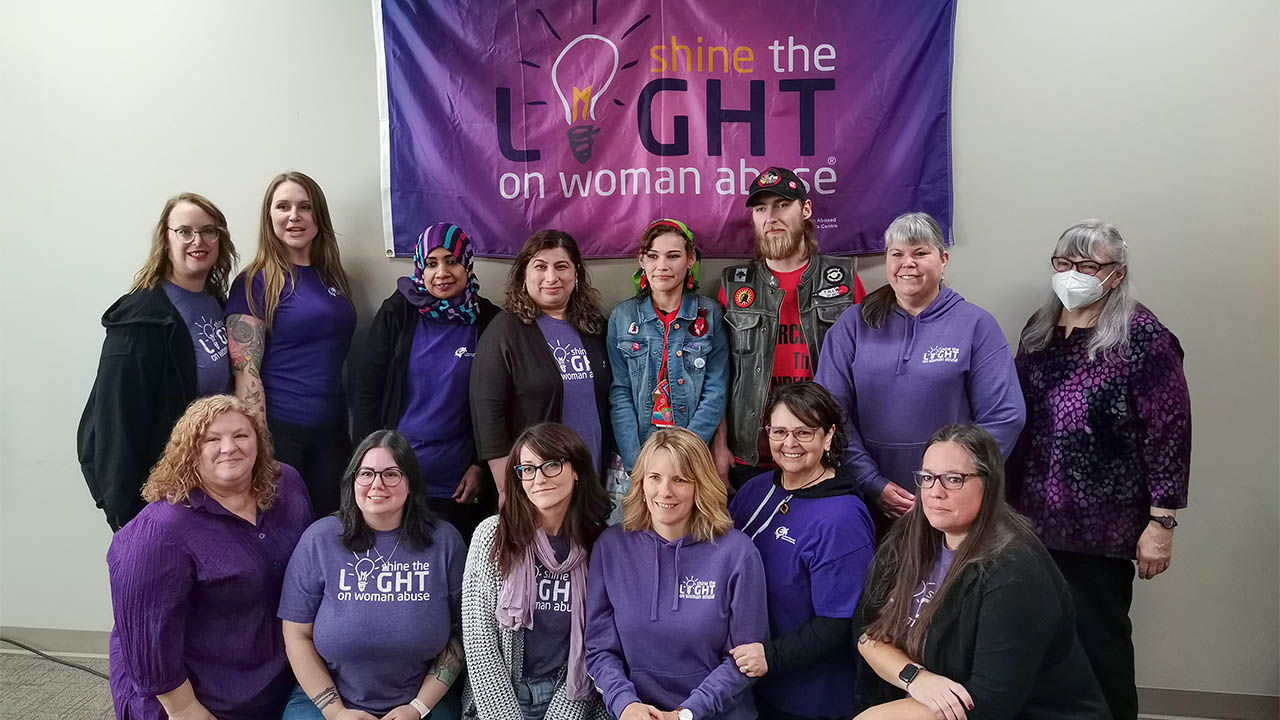November is Shine the Light month in London
 CREDIT: MAURICIO PRADO
CREDIT: MAURICIO PRADOMembers of the London Abused Women’s Centre (LAWC) kicked off the annual Shine the Light campaign on Oct. 20.
On Oct. 20, The London Abused Women’s Centre (LAWC) launched its 14th annual Shine the Light on Woman Abuse Campaign. This campaign aims to raise awareness of men’s violence against women by turning buildings and landmarks purple for the month of November.
This initiative seeks to show support for women and girls who have been victims of human trafficking, exploitation, or violence from intimate partners.
During the campaign launch, honouree Cambria Harris, whose mother, alongside three other women were victims of a serial killer in Dec. 2022, shared her story.
“Four women were mercilessly stolen from our lives and families. That changed us forever,” Harris said. “A serial killer lives in protected custody while my mother lays in a landfill. No landfill is a gravesite. It should never be a place for someone to get buried ever.”
Harris said that this campaign helps by continuing to have these conversations and simply acknowledging that this is a “very real and raw reality” that women face in Canada.
“It is about looking past the story, the statistics and numbers and realizing that those are loved human beings with families who expect them to return home,” Harris said.
Executive Director of LAWC, Jennifer Dunn, said that the campaign helps show women and girls that they are not alone and that any shame or blame they feel does not belong to them. Dunn added that the focus of the 2023 campaign shines a light on not only intimate partner violence but also the femicide experienced by missing and murdered Indigenous women, girls and Two-spirit people.
“Fanshawe students need to be able to have these types of conversations,” Dunn said. “They need to know that there is help available when they need it and that they are believed.”
Dunn said students need to understand they are not alone and that they do not deserve to be subjected to violence while they are going to school.
“It is essential for students because they need to know there is support available on campus, especially at Fanshawe,” Dunn said.
Dunn said that 14 years ago when the campaign started, it was “very grassroots and small initially” but that it has grown over time.
“We knew that something needed to be done to continue the conversation and to raise awareness of the issues,” Dunn said. “That is why every year, the campaign has become stronger.”
She said that as the years have passed, it has grown substantially and that social media has helped significantly.
“We have seen it grow tremendously on social media. When we started, social media was not as big as now.”
While Dunn said the campaign has made huge strides in awareness, she said it must go on to continue to the conversation.
“It needs to run year after year to continue having these conversations,” Dunn said. “The more we do it, the more people we approach.”
Dunn said that over the years, they have seen the federal and provincial governments get involved, which has helped to spread the word and more women to reach out.
Harris said that she hopes sharing her story helps inspire others to come out and share theirs.
“There are people out there who care and are willing to fight for you and to continue making those changes,” Harris said.
















